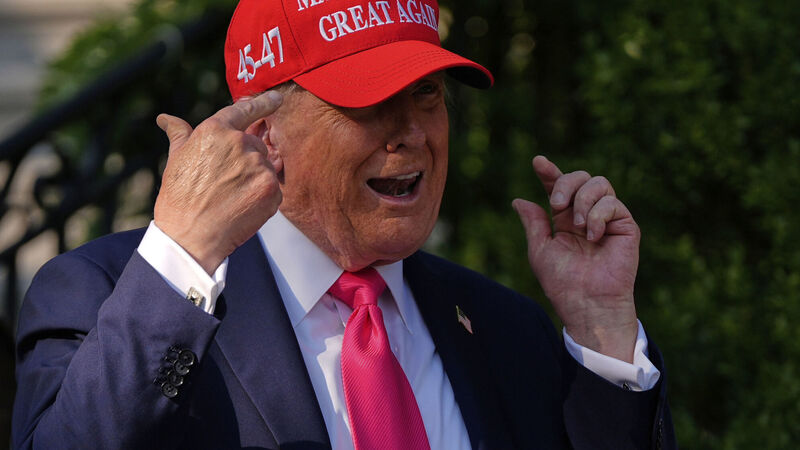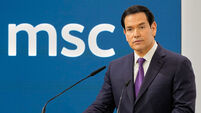US pauses plans for higher tariffs on EU as trade talks continue

Donald Trump's administration has provided a tariff extension beyond the initial deadline of this Wednesday. Picture: Julia Demaree Nikhinson/AP
The US is to pause plans to impose higher tariff rates on the EU until August as trade talks continue.
However, the Government here has ruled out any once-off supports for businesses in this autumn's budget despite warning that the economy faces “serious risks” as a result of US trade uncertainly.














